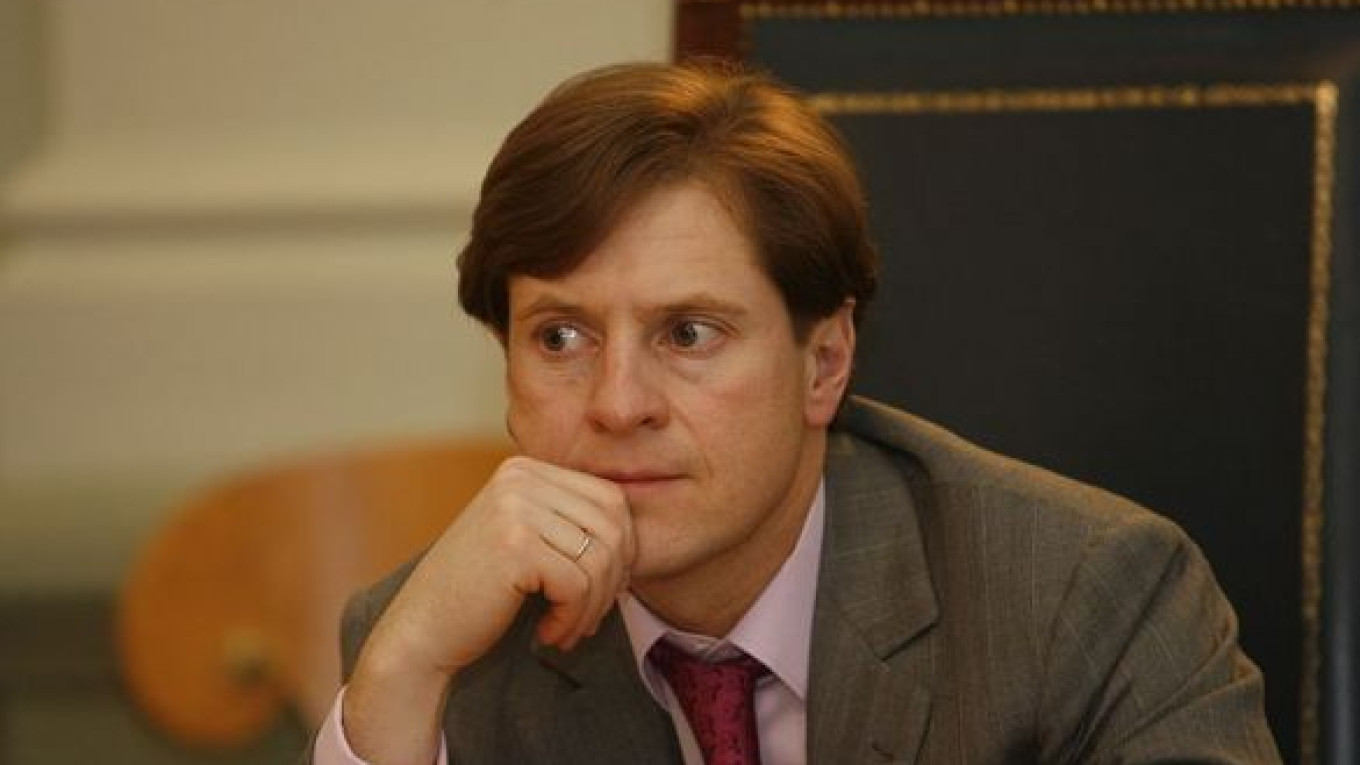The Interior Ministry vowed to press ahead with the extradition of Andrei Borodin, the former head of Bank of Moscow, after Britain decided to grant him political asylum, raising the specter that chilly relations between the two countries could worsen.
Four sets of criminal charges are outstanding against Borodin, who is accused of using his 16-year tenure as the president of Russia's fifth-largest bank for massive personal gain.
"Law enforcement organs will, as before, strive for the extradition of Borodin," the Interior Ministry said in a statement Friday carried by Interfax.
They are, however, very unlikely to succeed.
Much to the Kremlin's dismay, Britain has traditionally shielded high-profile Russians who flee their homeland in the face of threats against their lives or freedom.
Famous recipients of political asylum include 1990s kingmaker Boris Berezovsky and Chechen politician Akhmed Zakayev. Oil magnate Mikhail Gutseriyev and cell phone tycoon Yevgeny Chichvarkin have also used Britain as a haven from Russian law.
The decision to give Borodin political asylum was predictable, said Fyodor Lukyanov, editor of Russia in Global Affairs magazine.
"Great Britain rejects all Russian requests that are suspected of having a personal or political element," he said.
Borodin arrived in London in April 2011, as state-owned VTB stood on the brink of acquiring Bank of Moscow, which was set up by former Moscow Mayor Yury Luzhkov in 1995. Several months later, $14 billion worth of problem loans was discovered, forcing the biggest government bailout in Russian history.
Borodin declined a request to comment for this article, but he has maintained that the whole process was masterminded by then-President Dmitry Medvedev.
"The pursuit of me and my colleagues was politically motivated," Borodin told Vedomosti on Friday. "And behind this stand the interests of politicians, including former President Medvedev, who was the chief initiator of all this persecution and victimization."
Medvedev's spokeswoman criticized Britain's decision.
"The most important thing is to shout as loudly as you can about political persecution, and you will be guaranteed to receive political asylum," Natalya Timakova said, Itar-Tass reported. "It is regrettable that this unsophisticated system worked again."
Since beginning his self-imposed exile, Borodin has been sharply critical of VTB and the Kremlin. He even keeps a link to the blog of anti-corruption activist Alexei Navalny on his personal website.
The first criminal charges were filed against Borodin in 2011, and the Prosecutor General's office sent an official request for his extradition to London in March 2012. He is also being sought on a Russia-instigated international arrest warrant.
Once Britain grants asylum, it is almost never rescinded, said Jonathan Hendry, an immigration adviser at London-based Law Firm. After five years, recipients can apply for the right to stay indefinitely.
In October, a notorious documentary about the Russian opposition movement aired by state-controlled NTV alleged that Borodin had promised to raise $200 million and funnel it to the anti-Putin protest movement via Left Front leader Sergei Udaltsov.
Borodin said recently that a high-speed chase on Britain's M4 freeway involving his assistant could have been the work of Russian security services.
His suspicions are not without grounds. Several Russian exiles have been targeted abroad.
Former KGB agent Alexander Litvinenko died from polonium-210 poisoning in 2006 after having tea at a plush London hotel. And last year, banker German Gorbuntsov was gunned down outside his apartment in London's financial district.
But Borodin, whose personal fortune is estimated by Forbes at about $800 million, has also been making himself comfortable. Last year, he spent $217 million on a country estate in Oxfordshire.
Dmitry Akulinin, a former deputy head of Bank of Moscow who followed Borodin to London in 2011, is also wanted on criminal charges in Russia. It was unclear Friday whether he had also been granted political asylum by Britain.
Though Borodin is a relatively minor figure, the decision to ignore Russia's extradition request could worsen the already tense relationship between Moscow and London, experts said.
It could lead to tit-for-tat expulsions from Russia or visa refusals, said James Nixey, head of Chatham House's Russia and Eurasia Program.
"But the reason why it won't have much impact on Russia-British relations is because they're very bad already," he added.
Contact the author at [email protected]
Related articles:
A Message from The Moscow Times:
Dear readers,
We are facing unprecedented challenges. Russia's Prosecutor General's Office has designated The Moscow Times as an "undesirable" organization, criminalizing our work and putting our staff at risk of prosecution. This follows our earlier unjust labeling as a "foreign agent."
These actions are direct attempts to silence independent journalism in Russia. The authorities claim our work "discredits the decisions of the Russian leadership." We see things differently: we strive to provide accurate, unbiased reporting on Russia.
We, the journalists of The Moscow Times, refuse to be silenced. But to continue our work, we need your help.
Your support, no matter how small, makes a world of difference. If you can, please support us monthly starting from just $2. It's quick to set up, and every contribution makes a significant impact.
By supporting The Moscow Times, you're defending open, independent journalism in the face of repression. Thank you for standing with us.
Remind me later.


